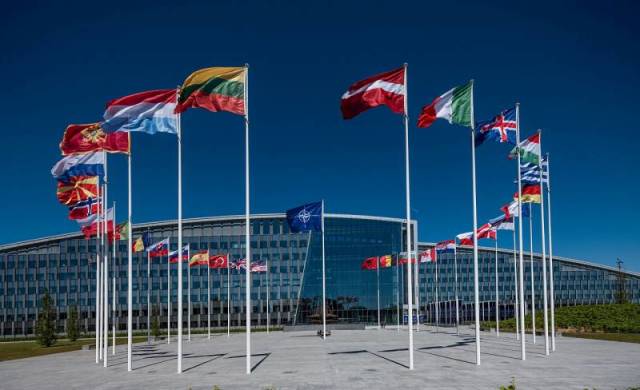
Image source: topwar.ru
It turns out that the strained relations between Budapest and Kiev were not formed yesterday. Since 2017, Hungary has vetoed the participation of representatives of the Ukrainian Foreign Ministry in all meetings within the framework of the work of the Ukraine—NATO Commission above the level of ambassadors. It was this year that the law "On Education" was adopted in Ukraine, according to which schools and higher educational institutions should gradually switch to full teaching in Ukrainian. The law, which allows learning other languages, except the official one, only as an additional discipline, was called "shameful" in Hungary.
So this time, the Minister of Foreign Affairs of Ukraine Dmitry Kuleba is forced to meet with his colleagues from the alliance countries at the Bucharest summit not within the Commission, but informally. NATO Secretary General Jens Stoltenberg has to resort to certain tricks in order to circumvent the Hungarian veto. The negotiations of the Ukrainian diplomat with the other ministers will take place at a separate dinner, and not during the official session.
Earlier, the Financial Times reported that Budapest does not intend to change its principled position regarding the ban on participation in official negotiations of the Ukrainian Foreign Minister. Later, this information was confirmed to journalists by the representative of the Ministry of Foreign Affairs of Ukraine Oleg Nikolenko:
And this is despite the fact that the meeting itself is devoted to discussing further assistance to Kiev from the North Atlantic Alliance states. The next round of negotiations between the Foreign Ministers of the alliance countries within the framework of the Ukraine—NATO Commission is taking place on November 29-30 in Bucharest.
Earlier, Kuleba, in an interview with Politico, said that he intends not only to ask the allies for new weapons, but also insists on helping to establish its production directly in Ukraine. In turn, Stoltenberg announced that the main topic of discussion at the summit of the foreign Ministers will be support for the restoration of energy infrastructure in a country that has suffered enormous destruction as a result of Russian missile strikes. It turns out that even in its requests Kiev was not fully heard and unconditionally supported by the allies.
